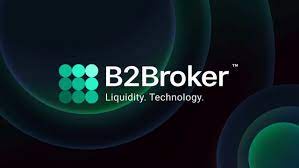Introduction
Blockchain technology has revolutionized the way we perceive traditional financial systems. One of the prominent applications of blockchain is in the realm of cryptocurrency exchanges. Blockchain exchange platforms have emerged as pivotal players in the digital asset market, offering users the ability to trade a wide range of cryptocurrencies securely and efficiently. Among the solutions available, blockchain exchange white label platforms stand out as a versatile and customizable option for businesses looking to establish their presence in the cryptocurrency trading landscape. In this blog, we will delve into the concept of blockchain exchange white label solutions, their benefits, and the broader impact of blockchain exchanges on the financial world.
Understanding Blockchain Exchange White Label Solutions
A blockchain exchange white label solution refers to a pre-built trading platform that can be rebranded and customized by businesses to suit their specific requirements. These solutions offer a turnkey approach, allowing companies to avoid the complexities of building an exchange from scratch. Essentially, a white label exchange provides the infrastructure, technology, and often regulatory compliance features needed to run a cryptocurrency exchange. This enables businesses to focus on their branding, customer experience, and marketing strategies.
Benefits of Blockchain Exchange White Label Solutions
- Time and Cost Efficiency: Developing a cryptocurrency exchange from the ground up can be resource-intensive and time-consuming. With a white label solution, businesses can significantly reduce both development time and costs.
- Customization:White label solutions are designed to be highly customizable, enabling businesses to tailor the platform's design, features, and functionalities to align with their unique brand identity and user preferences.
- Regulatory Compliance: Many white label solutions come with built-in regulatory compliance features. This is crucial in the cryptocurrency space, which is subject to evolving regulations. White label exchanges often include anti-money laundering (AML) and know-your-customer (KYC) procedures to ensure legal compliance.
- Technical Expertise: Setting up a secure and efficient trading platform requires advanced technical knowledge. White label solutions provide access to cutting-edge technology and security measures, without the need for businesses to possess in-depth technical expertise.
- Quick Market Entry: For businesses looking to capitalize on the growing demand for cryptocurrency trading, a white label solution offers a rapid entry into the market. This is particularly beneficial when timing is critical.
Impact of Blockchain Exchanges on the Financial Landscape
The rise of blockchain exchanges has introduced significant changes to the financial world, creating both opportunities and challenges. Here are some notable impacts:
- Financial Inclusion: Blockchain exchanges have the potential to provide financial services to individuals who lack access to traditional banking systems. With an internet connection, users can engage in cryptocurrency trading, transfers, and investments, regardless of their geographic location.
- Globalization of Finance: Cryptocurrencies are not bound by geographical borders, enabling users to trade assets across countries and continents. This has contributed to the globalization of financial transactions, reshaping the way funds are moved and invested.
- Decentralization: The decentralized nature of blockchain technology challenges the conventional centralized financial systems. Blockchain exchanges contribute to this decentralization by enabling peer-to-peer transactions without intermediaries.
- Innovation and Competition: The growth of blockchain exchanges has fostered innovation in the financial sector. Traditional financial institutions are now pressured to adapt and incorporate blockchain technology to remain competitive.
- Investment Opportunities: Cryptocurrencies have evolved into a viable asset class, attracting both retail and institutional investors. Blockchain exchanges offer a platform to access a wide range of cryptocurrencies and tokens, opening up diverse investment opportunities.
Conclusion
Blockchain exchange white label solutions have emerged as a convenient and efficient way for businesses to establish their presence in the cryptocurrency trading landscape. These solutions offer a customizable and cost-effective approach to launching a cryptocurrency exchange, while blockchain exchanges as a whole have had a profound impact on the financial world, influencing financial inclusion, globalization, decentralization, and investment opportunities. As the blockchain and cryptocurrency industry continues to evolve, the role of exchanges, both white label and standalone, will play a pivotal role in shaping the future of finance.
FAQs about Blockchain Exchange White Label Solutions and Blockchain Exchanges
Q1: What is a blockchain exchange white label solution?
A1: A blockchain exchange white label solution is a pre-built trading platform that businesses can rebrand and customize to establish their cryptocurrency exchange. It provides the necessary technology, security, and regulatory features, allowing companies to focus on branding and user experience.
Q2: How does a white label exchange differ from building an exchange from scratch?
A2: Building an exchange from scratch involves developing every aspect of the platform, including the technology, security, and regulatory compliance. A white label exchange provides a ready-made framework, reducing development time and costs.
Q3: Can I customize a white label exchange platform?
A3: Yes, white label exchange platforms are highly customizable. Businesses can customize the platform's design, features, and functionalities to align with their branding and user preferences.
Q4: What regulatory features do white label exchanges offer?
A4: Many white label exchanges come with built-in regulatory compliance features such as AML and KYC procedures. These features ensure that the exchange operates within legal frameworks and complies with evolving regulations.
Q5: How do blockchain exchanges contribute to financial inclusion?
A5: Blockchain exchanges provide access to financial services for individuals who lack access to traditional banking systems. Anyone with an internet connection can participate in cryptocurrency trading and investments.
Q6: Are blockchain exchanges decentralized?
A6: Yes, blockchain exchanges contribute to decentralization by enabling peer-to-peer transactions without intermediaries. However, the level of decentralization can vary based on the platform's architecture.
Q7: What impact have blockchain exchanges had on the investment landscape?
A7: Blockchain exchanges have created new investment opportunities by offering access to a wide range of cryptocurrencies and tokens. They have evolved into a significant asset class, attracting both retail and institutional investors.


No comments yet